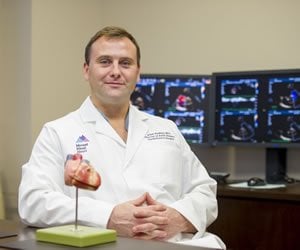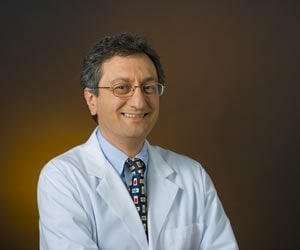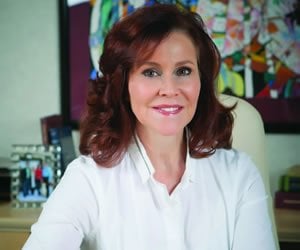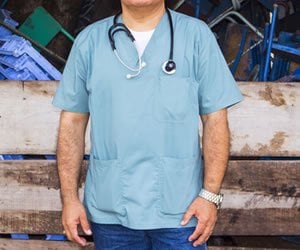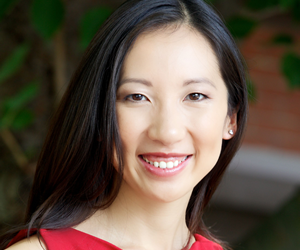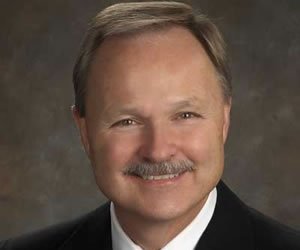Thoracic surgeon Dr. Allan S. Stewart is director of the aortic surgery program and co-director of the valve repair center at Mount Sinai Health System. Stewart received his bachelor’s degree in biology magna cum laude from St. Peters College (1991), and his MD from University of Medicine & Dentistry of New Jersey (1995). Dr. Stewart completed an internship and residency in general surgery at Hospital of the University of Pennsylvania. He completed a postdoctoral research fellowship in the division of cardiothoracic surgery/department of physiology at University of Pennsylvania School of Medicine, a chief residency in general surgery at Hospital of the University of Pennsylvania, and a residency in cardiothoracic surgery at Columbia University Medical Center. Lastly, he completed a fellowship in ventricular assistance at Columbia University Medical Center. Dr. Stewart is currently associate professor of cardiothoracic surgery at Icahn School of Medicine, Mount Sinai Health System.
medicine
20 Questions: Antoine Sayegh, MD: Medical Oncology/Hematology
Dr. Antoine Sayegh is a hematologist and medical oncologist practicing in Sacramento and Roseville, California. … Read more
Letter-By-Letter, Word-By-Word
Republished with permission from here. The first day of my medicine rotation, I proudly put on … Read more
20 Questions: Mary Lupo, MD, Dermatologist
Mary Lupo, MD, is a practicing dermatologist and clinical professor of dermatology at Tulane University School of Medicine. Dr. Lupo began using combination protocols for her patients that included collagen fillers, light chemical peels, and topical products such as Retin-A and alpha hydroxy acids with sun protection. She received a bachelor’s degree in biology from Newcomb College of Tulane University (summa cum laude, 1976). She received her MD from Tulane University School of Medicine (1980). She then completed an internal medicine internship at Ochsner Hospital (1980-1981) before entering the dermatology program at Tulane University School of Medicine (1981-1984), where she served as chief resident in her final year.
Dr. Lupo is a member of the American Academy of Dermatology (former committee member); American Dermatological Association; American Society for Dermatologic Surgery (former board of directors and committee member); Women’s Dermatologic Society (former president and committee member); Eastern College of Health Vocations (medical advisory board); TopMD Skin Care (medical advisory board); Strathspey Crown (founding member and operating partner); Annenberg Circle of the Dermatology Foundation; and Stegman Circle of the ASDS Dermasurgery Advancement Fund. Dr. Lupo is the author of more than 60 published articles and book chapters, and she has been a speaker on various dermatological topics at nearly 250 national and international meetings and seminars. She serves on the editorial board of Prevention Magazine, Current International, the Journal of European Academy of Dermatology and Venereology, and Cosmetic Dermatology. Dr. Lupo has been published in Journal of Drugs in Dermatology, Journal of Clinical Aesthetic Dermatology, Cosmetic Dermatology, Journal of Cosmetic Dermatology, The Skin Cancer Foundation Journal, Dermatological Surgery, Plastic Reconstructive Surgery, Dialogues in Dermatology, Journal of Dermatological Surgery Oncology, Postgraduate Medicine, and Archives of Dermatology.
Those Who Can Do, Teach….and Lead: A Conversation with Mark Walton, MD
At this past year’s UC Davis Pre-Health Conference, Stanford Health Care’s Chief of Staff, Dr. Mark Welton headlined three popular sessions. His talks centered on what a chief of staff is, how you get to be chief of staff, and what we need to do to maintain health care costs.
No one would have guessed that back in the 1970’s, on this same campus, the distinguished physician and leader was told he’d never make it through UC Davis’s pre-med program, let alone get into medical school.
“I struggled through some of the classes,” Walton, who is also the Chief of Colon and Rectal Surgery, admits. Lucky for the medical profession, he not only managed to make it through pre-med, but successfully finished medical school at UCLA and completed a fellowship in colon and rectal surgery at Washington University. After teaching at University of California, San Francisco for 8 years, Walton transitioned to Stanford in 2001 and has been there ever since.
Breaking Bad (News, That Is)
My stomach sunk. The results of the biopsy were back and it was not good. I had met Ms. Jones eight days ago when she was admitted for a pneumonia that antibiotics couldn’t seem to shake. Once hospitalized, we’d brought out the big guns and she had been clinically improving on that well-loved duo of vanc and zosyn. (Med students take note: vanc/zosyn is almost always an acceptable answer when pimped about which antibiotics to start – they may be overkill, but you’re unlikely to be wrong.) Despite her improvement, things had not been adding up – we kept putting 2 and 2 together and getting 6. A young woman in her late 30s, she had no good reason to have this month-long pneumonia and her chest x-ray looked, in a word, terrible. Even I as an intern could see that what had been a right middle lobe infection when she first presented a month ago was now also in her upper lobes and – oddly – her left lung was looking increasingly cloudy.
Barbara Ross Lee: The Beauty of the Broken-Field Run
There’s no doubt that Dr. Barbara Ross Lee has led a distinguished career. The first African-American woman to be appointed Dean of a medical school, her other accomplishments include participation in the Robert Wood Johnson Health Policy Fellowship and garnering numerous awards. But for Ross, the path to success was full of twists and turns.
“At my institution, we call it the ‘broken field run’,” she told Student Doctor Network during an interview at the 2014 UC Davis Pre-Health conference. “It wasn’t as if I (had the typical path and) went to school and did pre-med and then went to medical school and then went into post-graduate training. I went to undergrad, then I got a job, then I got married, had kids, then I went back and got a masters, and then the opportunity arose for me to go to medical school.” And that’s just the beginning of her storied career.
Mission Medicine
Lucy Doyle, M.D., had never imagined that life after residency could be so hard. But … Read more
Of Capacity and Communication
I am about 45 minutes from the end of my night float shift, that dangerous hour all residents learn to wait through with baited breath, when my pager goes off. Pushing the button to silent its insistent beep, I read the text: “STAT 4-9876.” I am slightly bemused. STAT pages in psychiatry are few and far between. If one of the patients on the psych floor has had an MI, stroke, or something else that necessitates an immediate response, I may be the last to find out, as the nurse will often call a code and bring a medicine team running before letting me know what is going on. Even a consult for a suicidal patient on a medicine floor, considered a psychiatric emergency, doesn’t exactly necessitate the same sort of urgency as anaphylaxis or an acute abdomen. I like pondering and deliberation, making me naturally suited for psychiatry. Rather than engendering excitement, the word STAT makes my blood run a little cold. Besides, I typically assume that if someone is paging me, urgency is implied, and I return the call immediately; the two year old inside me smarts at being told to hurry up.
Why I Smile
Republished with permission from here. At 8 a.m. every morning of the work week, I show … Read more
Stepping Into the Medical Field and Out of Your Comfort Zone
Are you ready to become a doctor? Making the transition from undergraduate to medical school student, and on to being a full time doctor can be exciting and intimidating at the same time. There are many challenges and obstacles you may face along your journey, but what is most important is that you face them with confidence. Read on for tips on how to make stepping outside your comfort zone a little more comfortable.
Build Strong Relationships With Your Professors
Start out in the classroom. When you are still studying, whether you are an undergraduate or already in medical school, classes should be much more than simply showing up and doing the work. Take time to get to know your professors, if the size of your university/class allows. They have vast amounts of knowledge and experience, and most likely they are more than happy to share that with you!
Talking to Parents About Vaccines
Well Baby visits can be stressful for both physicians and the new parents – not … Read more
When Did You Know You Wanted to be a Doctor?
When did you know you wanted to be a doctor? the pre-med asked. Maybe it should … Read more
Hospitalists "Seeing Wisely": A High Value Proposition
I remember being a third year medical student and reading Bob Wachter’s piece in the New … Read more
Humane Medicine
Republished with permission from here. “What can you do here that we can’t do at home?” … Read more
When Doctors Listen: A Conversation with Dr. Leana Wen
Dr. Leana Wen was on a roll. The Washington University medical student was president of … Read more
Top 5 Reasons Applications Get Rejected
In 2013, roughly half of all medical school applicants did not receive an acceptance letter. … Read more
Finding the Joy in Medicine: A Conversation with Dr. David A. Fleming
Despite being the current President of the American College of Physicians (ACP), David A. Fleming, … Read more
Seven Habits of Highly Effective Clinical Students
Republished with permission from here. Congratulations! You’ve made it to the clinical portion of medical … Read more
Coming to a Future Near You: Neuromodulation, a Multi-Specialty Field
Neuromodulation is an exciting therapy for improving neurological ailments. When I graduated medical school in … Read more

